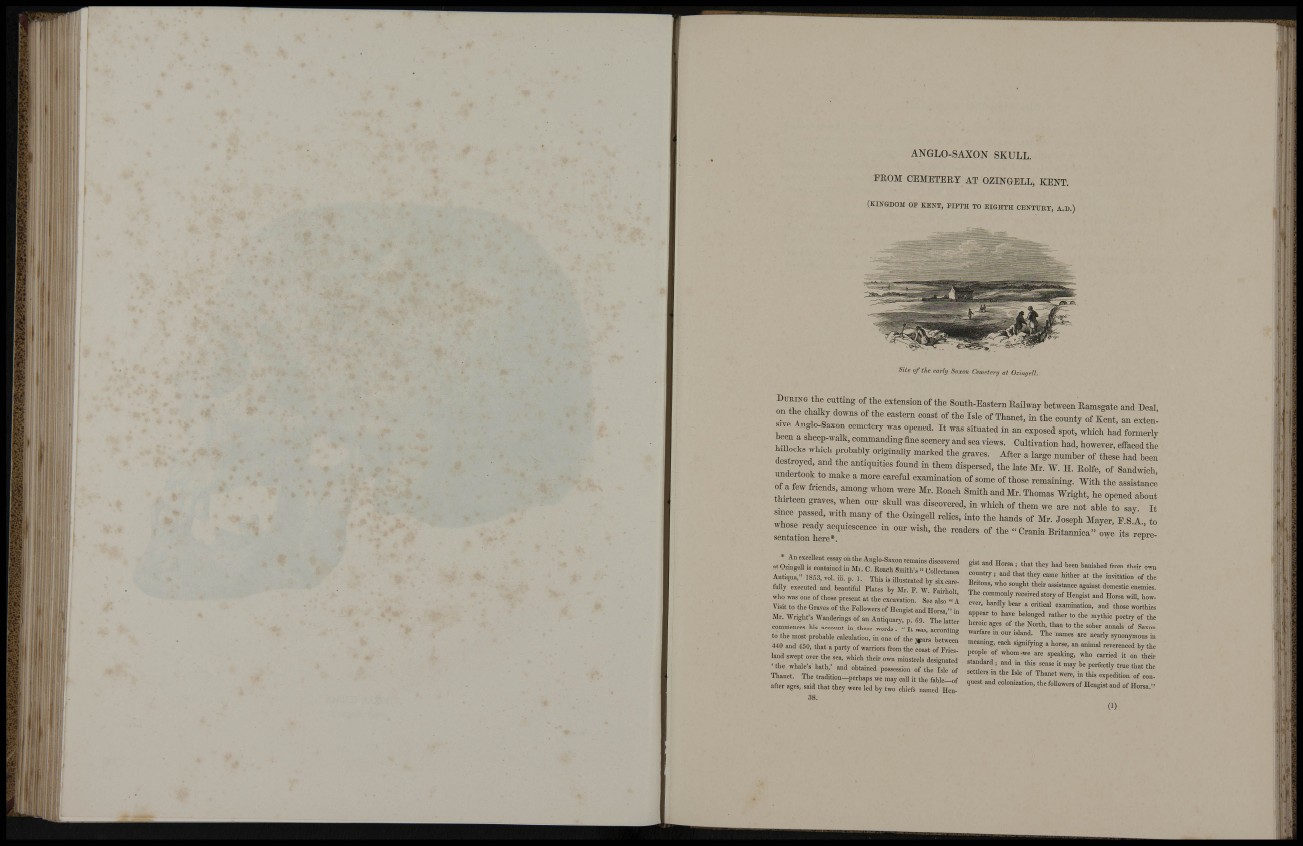
9»
t
•
ANGLO-SAXON SKULL.
FROM CEMETERY AT OZINGELL, KENT.
(KINGDOM OP KENT, prPTH TO EIGHTH CENTUEY, A.D.)
Site of the early Saxon Cemetery at OAitjell.
D u k i k g the cutting of the extension of the South-Eastern Railway between Ramsgate and Deal
X e Z l f s ' ^ ^^^ - -ten!
b n a sheep-walk c _ d . n g i i n e scenery and sea views. Cultivation had, however, effaced the
e t r d 1 r ^ l^ad been
destroyed and the antiquities found in them dispersed, the late Mr. W. H. Rolfe, of Sandwich
o T i i w t T " ' examination of some of those remaining. With the assistance
of ^ e w taends, among whom were Mr. Roach Smith andMr. Thomas Wright, he opened about
toteen graves, when our skull was discovered, in which of them we are L t able to say. It
smce passed, with many of the OzingeU relics, into the hands of Mr. Joseph Mayer E S A to
* An excellent essay on the Anglo-Saxon remains diseoYered
atOzingell is contained in Mi-. C. Eoacli Smith's " Collectanea
Autiqua," 1853, vol. iii. p. 1. This is illustrated by six carefully
executed and beautiful Plates by Mr. F. W. Fairholt,
who was one of those present at the excavation. See also " A
Visit to the Graves of the Followers of Hengist aud Horsa," in
Mr. Wright's Wanderings of an Antiquary, p. 69. The latter
commences his account in these words: " It ™as, according
to the most probable calculation, in one of the j^ars between
440 and 450, that a party of warriors from the coast of Friesland
swept over the sea, which their own minstrels designated
' the whale's bath,' and obtained possession of the Isle of
Thanet. The tradition—perhaps we may call it the fable—of
after ages, said that they were led by two chiefs named Hen-
38.
gist and Horsa ; that they had been banished from their own
country ; and that they came hither at the invitation of the
Britons, who sought their assistance against domestic enemies.
The commonly received story of Hengist and Horsa wiU, however,
hardly bear a critical examination, and those worthies
appear to have belonged rather to the mythic poetry of the
heroic ages of the North, than to the sober annals of Saxon
warfare in our island. The names are nearly synonymous in
meaning, each signifying a horse, an animal reverenced by the
people of whom -we are speaking, who carried it on their
standard; and in this sense it may be perfectly true that the
settlers in the Isle of Thanet were, in this expedition of conquest
and colonization, the followers of Hengist aud of Horsa."
(1)
!i
I
•V.l;
il
ilili
i I